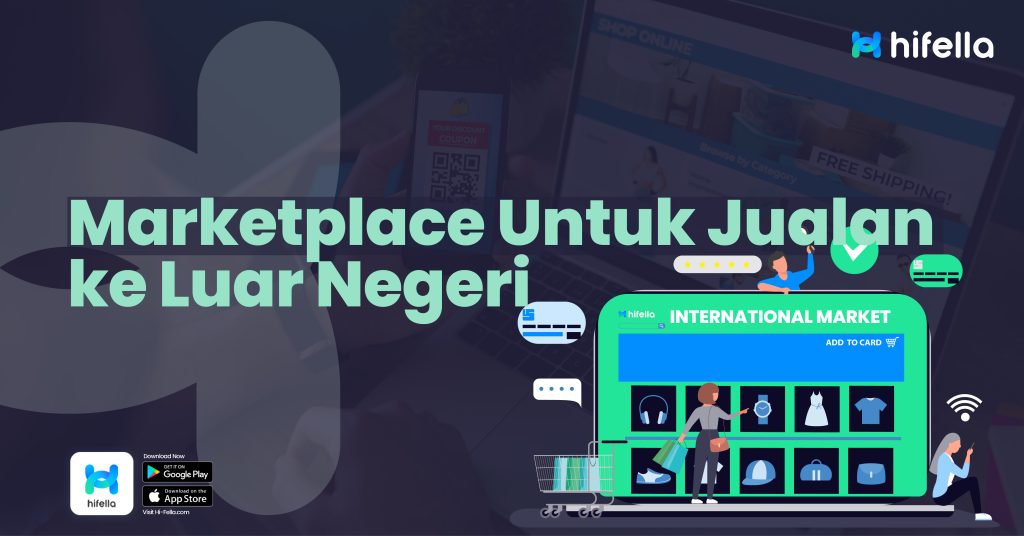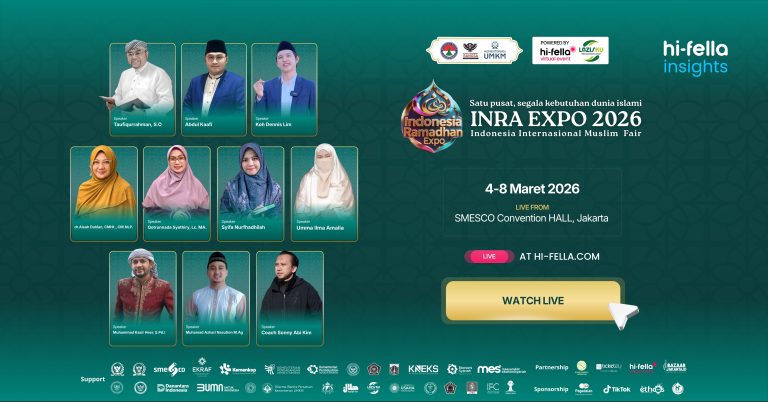Table of Contents
Dalam era globalisasi ini, memperluas bisnis ke pasar internasional bukan lagi suatu mimpi yang sulit diwujudkan, terutama bagi pedagang online atau pemilik bisnis kecil dan menengah atau UMKM.
Dengan kemudahan akses internet dan berkembangnya berbagai platform e-commerce lintas negara, kesempatan untuk menjangkau pelanggan di seluruh dunia semakin terbuka lebar.
Oleh karena itu, pada artikel ini kami akan memberikan beberapa rekomendasi marketplace untuk jualan ke luar negeri, dan juga tambahan informasi mengenai bagaimana cara memanfaatkan platform-platform ini untuk memaksimalkan potensi bisnis Anda sampai di kancah internasional.
Apa Itu Marketplace Internasional?
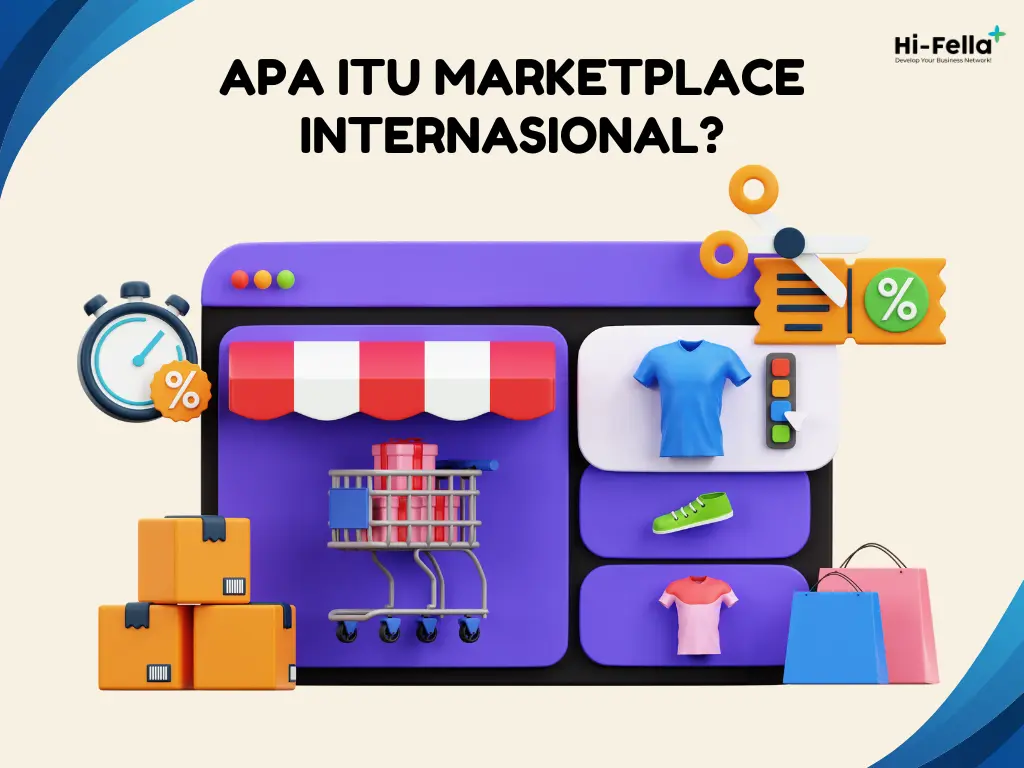
Dilansir dari Velocity Global, marketplace internasional adalah platform e-commerce yang memungkinkan pedagang dari berbagai negara untuk menjual produknya kepada konsumen di seluruh dunia.
Platform ini menawarkan peluang besar bagi bisnis kecil dan menengah untuk menjangkau pasar yang lebih luas tanpa harus menghadapi kendala geografis yang sangat jauh.
Mengapa Memilih Marketplace Internasional?
Sebelum mengetahui apa saja rekomendasi marketplace untuk jualan ke luar negeri, penting juga untuk mengetahui apa saja keuntungan jika menggunakan marketplace internasional.
Memilih untuk berjualan di marketplace internasional berarti Anda bisa mendapatkan akses ke pasar yang lebih luas, eksposur brand yang meningkat, serta kemudahan dalam pengelolaan logistik dan pembayaran lintas negara.
Rekomendasi Marketplace untuk Jualan ke Luar Negeri
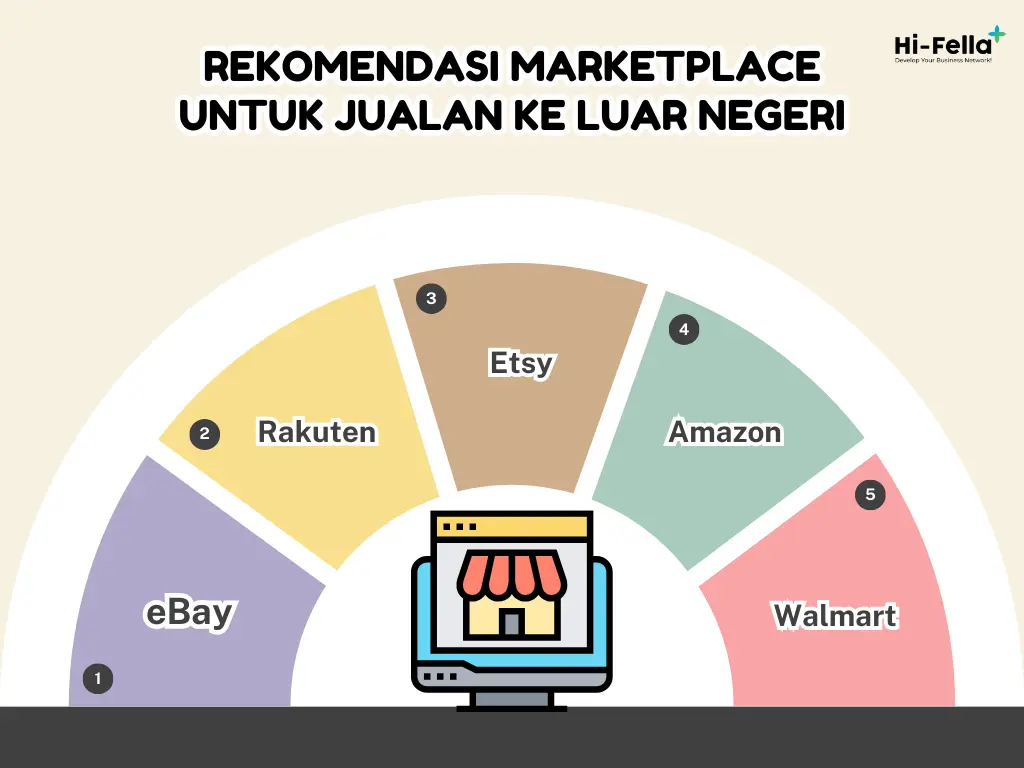
Berikut adalah beberapa rekomendasi marketplace untuk jualan ke luar negeri dengan cepat dan mudah.
1. eBay
Sejak pertama kali diluncurkan pada tahun 1995, eBay telah menjadi salah satu marketplace terbesar untuk penjualan internasional, terutama barang bekas.
eBay memberikan kesempatan bagi penjual barang bekas dan baru untuk melelang barang mereka dengan harga yang tinggi. Cara menggunakan eBay juga sangat mudah, cukup dengan membuat akun dan Anda bisa langsung memulai penjualan.
2. Rakuten
Rakuten, marketplace asal Jepang ini, dulu dikenal dengan nama buy.com. Marketplace ini menawarkan berbagai jenis produk, mulai dari pakaian, peralatan rumah tangga, suku cadang kendaraan, hingga produk kecantikan.
Rakuten dianggap unik, karena menyediakan manajer akun pribadi untuk penjual, yang membantu dalam pengelolaan penjualan.
3. Etsy
Biasanya untuk produk yang unik, seperti barang vintage atau kerajinan tangan, Etsy adalah tempatnya. Marketplace ini sangat bagus untuk menjaga pelanggan setia dan cocok bagi mereka yang ingin memulai usaha online dengan produk unik dan ingin membangun brand.
4. Amazon
Amazon, salah satu raksasa e-commerce dunia asal Amerika Serikat, menawarkan berbagai macam produk. Bagi penjual yang ingin mengembangkan bisnisnya secara internasional, Amazon merupakan platform yang ideal.
5. Walmart
Mirip dengan Amazon, Walmart juga menargetkan penjual menengah ke atas yang ingin memperluas pasar mereka secara online.
Bergabung dengan Walmart memang lebih rumit dibandingkan dengan marketplace lain, namun setelah terdaftar, penjual akan mendapatkan akses ke lebih dari 100 juta pembeli yang berbelanja setiap bulan.
Fitur dan Keuntungan Marketplace
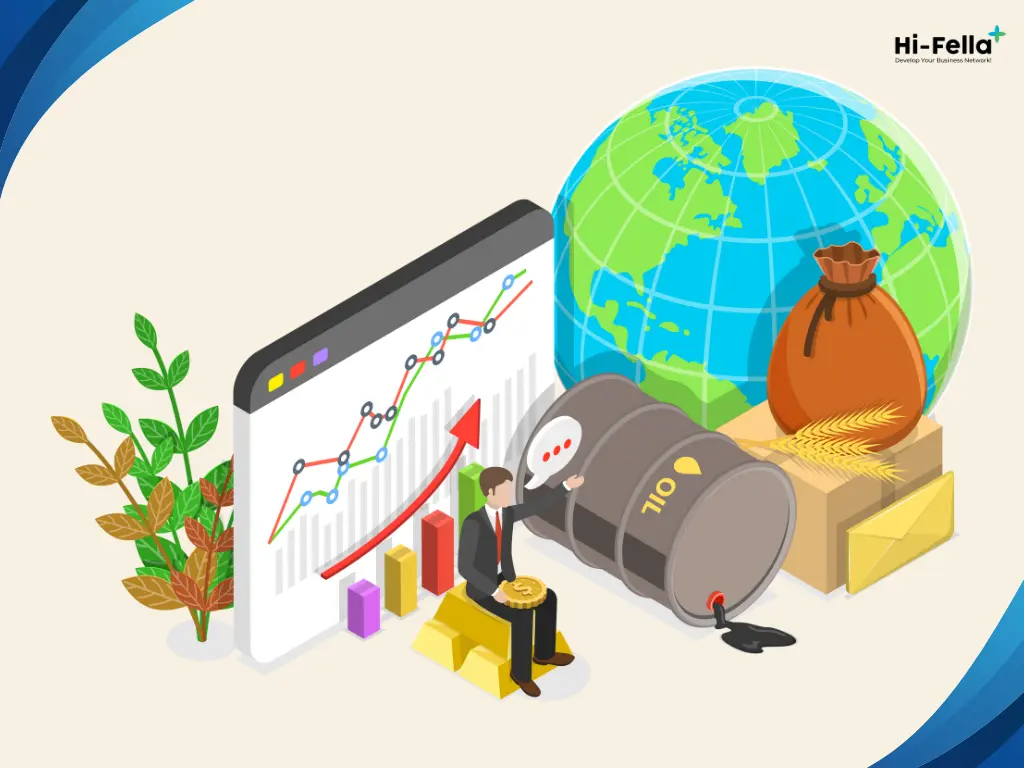
Fitur-Fitur Utama
Sebagian besar marketplace internasional menawarkan berbagai fitur untuk mendukung penjualan Anda, termasuk:
- Manajemen Inventori: Kemudahan dalam mengelola stok produk Anda secara real-time.
- Sistem Pembayaran: Dukungan untuk berbagai mata uang dan metode pembayaran internasional.
- Logistik dan Pengiriman: Solusi logistik terintegrasi yang memudahkan pengiriman produk ke berbagai negara.
- Dukungan Pelanggan Multibahasa: Memungkinkan komunikasi yang efektif dengan pelanggan dari berbagai latar belakang bahasa.
Keuntungan Berjualan di Marketplace untuk Jualan ke Luar Negeri
Berpartisipasi dalam marketplace internasional membawa keuntungan yaitu sebagai berikut:
- Pasar yang Lebih Luas: Akses ke jutaan pelanggan potensial di seluruh dunia.
- Brand Awareness: Meningkatkan kesadaran merek dan membangun reputasi internasional.
- Peningkatan Penjualan: Potensi peningkatan penjualan melalui akses ke pasar-pasar baru.
Tips Berjualan ke Luar Negeri
1. Memahami Pasar
Sebelum memulai, lakukan riset pasar untuk memahami kebutuhan dan preferensi konsumen di negara target. Hal ini termasuk mempelajari tren lokal, kebiasaan belanja, serta regulasi dan hambatan perdagangan.
2. Optimalisasi Produk dan Listing
Pastikan listing produk Anda menarik dan informatif, dengan foto berkualitas tinggi dan deskripsi yang jelas. Gunakan kata kunci yang relevan untuk meningkatkan visibilitas di hasil pencarian.
3. Strategi Harga dan Promosi
Tetapkan harga yang kompetitif dan pertimbangkan strategi promosi untuk menarik pelanggan. Perhatikan biaya pengiriman internasional dan tarif bea cukai yang mungkin mempengaruhi harga akhir produk.
4. Pelayanan Pelanggan yang Berkualitas
Menyediakan layanan pelanggan yang responsif dan berkualitas adalah kunci untuk membangun kepercayaan dan loyalitas pelanggan. Pastikan tim Anda dapat menangani pertanyaan dalam berbagai bahasa dan responsif terhadap feedback pelanggan.
5. Memanfaatkan Teknologi dan Tools
Pemanfaatan teknologi dan alat yang tepat sangat penting untuk efisiensi dan skala bisnis Anda. Gunakan perangkat lunak manajemen inventori, alat analisis pasar, dan platform media sosial untuk memperluas jangkauan serta meningkatkan keterlibatan dengan pelanggan Anda di seluruh dunia.
6. Mempersiapkan Logistik dan Pengiriman
Pengiriman internasional dapat menjadi tantangan, jadi penting untuk memiliki strategi logistik yang solid. Kerja sama dengan penyedia logistik yang memiliki pengalaman dalam pengiriman internasional dan yang menawarkan tarif yang kompetitif.
Pastikan Anda memahami regulasi, bea masuk, dan pajak untuk negara tujuan pengiriman agar dapat memberikan estimasi biaya dan waktu pengiriman yang akurat kepada pelanggan.
7. Membangun Kepercayaan dengan Ulasan dan Testimoni
Ulasan dan testimoni positif dari pelanggan dapat meningkatkan kredibilitas dan menarik pelanggan baru.
Dorong pelanggan Anda untuk meninggalkan ulasan setelah melakukan pembelian dan gunakan umpan balik ini untuk meningkatkan produk atau layanan Anda.
8. Mengikuti Tren dan Adaptasi
Pasar internasional terus berkembang, jadi penting untuk tetap up-to-date dengan tren terkini dan adaptasi terhadap perubahan permintaan pasar.
Ini mungkin melibatkan diversifikasi produk, penyesuaian strategi pemasaran, atau ekspansi ke marketplace baru.
9. Memiliki Keamanan yang Terjamin
Pastikan bisnis Anda mematuhi semua regulasi internasional terkait privasi data, keamanan pembayaran, dan perdagangan lintas batas.
Keamanan pelanggan harus menjadi prioritas utama, termasuk perlindungan data pribadi dan transaksi keuangan yang aman.
Kesimpulan
Memperluas bisnis ke pasar internasional melalui marketplace untuk jualan ke luar negeri menawarkan peluang yang luar biasa untuk pertumbuhan.
Dengan memahami fitur dan keuntungan dari platform ini, serta mengikuti tips yang telah dibagikan, Anda sudah bisa meningkatkan potensi bisnis Anda di kancah global!
Namun perlu diingat bahwa kunci keberhasilan berjualan ke luar negeri adalah persiapan yang matang, riset pasar yang mendalam, dan juga komitmen untuk menyediakan produk dan layanan yang berkualitas.
Selain beberapa rekomendasi marketplace international yang sudah dijelaskan di atas, Anda juga bisa menggunakan platform Hi-Fella sebagai platform untuk mengembangkan bisnis Anda di kancah global melalui berbagai fitur yang ada di dalamnya seperti berikut:
1. Terhubung dengan Lebih dari 7 Juta Pembeli dan Penjual
Hi-fella memberikan kesempatan bagi Anda yang ingin terhubung dengan lebih dari 7 juta pembeli dan penjual yang antusias untuk berkolaborasi dengan bisnis Anda.
2. Akses Langsung ke Pemasok
Dapatkan akses langsung ke pemasok dari database perdagangan global sehingga dapat memudahkan Anda untuk menemukan sumber daya yang Anda butuhkan tanpa perantara, serta kami juga akan memastikan keaslian dan kualitas barang tersebut.
3. Dapatkan Data Secara Menyeluruh
Hi-fella menyediakan data komprehensif yang memungkinkan Anda menemukan importir dan eksportir, membantu Anda memperluas jaringan bisnis Anda secara global.
Dengan informasi yang akurat dan terkini, Anda bisa membuat keputusan yang lebih baik dan strategis untuk bisnis Anda kedepannya.
4. Platform yang Andal dan Efisien
Hi-fella dirancang untuk bisnis impor-ekspor berbagai komoditi dengan fokus pada keandalan dan efisiensi. Platform ini juga menyediakan semua yang Anda butuhkan untuk memperlancar operasi bisnis Anda dan mencapai tujuan bisnis dengan lebih mudah. Yuk, cobain sekarang!



